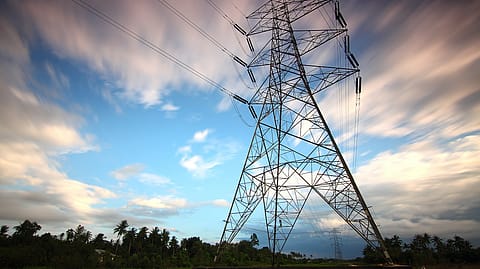The path to smart power
Using smart meters will lead to happy discoms and customers and pave the way to smart grid connectivity.

The role of smart meters and its value proposition has come into a lot of focus during the Covid-19 pandemic, wherein distribution utilities are constrained in performing the basic tasks of meter reading and subsequently billing. Many utilities have been forced to resort to provisional billing (i.e. an estimate based on the actual meter reading pattern of the last few months of the same year or that of the previous year during a similar billing cycle). This has, however, caused a huge uproar in several cities where consumers have taken to social media and other mediums to vent their surprise and frustration at what they perceived as inflated bills. Distribution utilities have subsequently spent a huge amount of their resources and time in explaining the methodology of provisional billing and extending facilities such as instalments to ease the monthly burden for customers.
All this pain and stress for both consumers and utilities has been avoided where smart meters are installed. Such a meter communicates the meter reading to the utility without any manual intervention, thereby eliminating the need to do billing on a provisional or estimated basis. For example, in Delhi, smart meters have come to the rescue of discoms and consumers. As many as 200,000 smart meters across consumer segments—domestic, industrial, and commercial—enabled 350,000 bills to be raised with actual readings during the lockdown. They also helped prevent more than 150,000 visits a month to consumers’ premises during the lockdown.
While the benefit of avoiding provisional billing and ensuring actual meter reading is an important one, I believe that this is just the tip of the iceberg as far as benefits from installing smart meters are concerned.
Substantial value for discoms and consumers
The benefits of smart meters for Discoms and Consumers can be categorised into three broad areas:
Recommended Stories
Commercial/revenue protection: Smart meters can transmit consumption data at periodic intervals to the utility. This data is a gold mine for the utility and its insights can lead to significantly improved revenue protection in real time rather than the lag of a month (when monthly meter reads are analysed) which is the normal practice. Real-time detection of anomalies such as theft, meter tampering, etc. and strict enforcement of this can lead to significant reduction in AT&C losses (aggregate technical and commercial losses).
Reduction in operational cost: There are multiple use cases of smart meter applications which can help save costs for discoms (and ultimately the consumers). One such example is the use of the “last gasp” communication of the smart meter when there is a power outage. Instead of waiting for the consumer to notify a complaint, the discom through integration of this communication to the distribution management system/outage management system can proactively detect these outages instantly, send the crew for early restoration, and inform the consumers about the outage and likely restoration time. This will prevent unnecessary calls to the call centre, thereby saving operational costs, and the delay in restoring supply.
(INR CR)
Another use case is where the operational costs of the discom is saved through real-time monitoring of transformer loading. This is especially important during the peak load periods when some distribution transformers (DT) get loaded for an extended period and there is a high risk of costly DT failure.
Customer engagement: The biggest benefit of a smart meter for the discom is the opportunity to engage the consumer. The shift to smart meters can empower the consumers by providing them full control of their electricity consumption. The consumer can have real-time view with respect to his/her consumption and the utility can proactively broadcast steps the consumer can take to save his/her monthly electricity costs.
Smart meters with the combination of wireless technologies can give proficient home energy management solutions to build a smart home. An array of sensor- and actuator-based appliances that have been commissioned in smart buildings to manage the connection of electrical load can be remotely controlled by the consumer based on the information provided by the smart meter. This is already in vogue in Europe and parts of the U.S. and will come into India in a big way as the cost of these devices goes down. Another future customer engagement possibility is the peer-to-peer trading of excess rooftop solar power which is possible if the customer has smart meters.
Thus the possibilities for customer engagement are enormous with smart meter data being available.
Capturing this value needs an integrated approach
As often with technology implementation projects, the challenge is conceptualisation and implementation. For smart meter implementation, the focus has to be on an integrated approach to ensure that the full benefits are captured. Different teams within the utility associated with commercial, operations, it, communication, contracts, customer services, and employee capability building must work as a team to ensure the envisaged benefits are captured.
Smart meters are going to transform the power sector by paving the way to smart grid connectivity and alter the landscape across discoms. The benefits in metering-billing are enormous and are waiting to be captured in the areas of operational efficiency and customer engagement.
Views are personal. The author is CEO, TATA Power Delhi Distribution Limited.